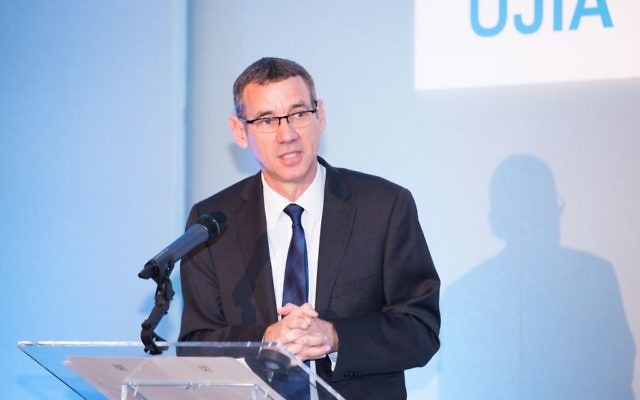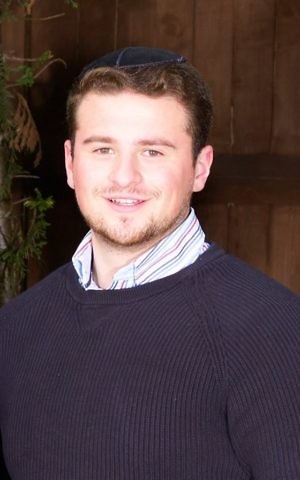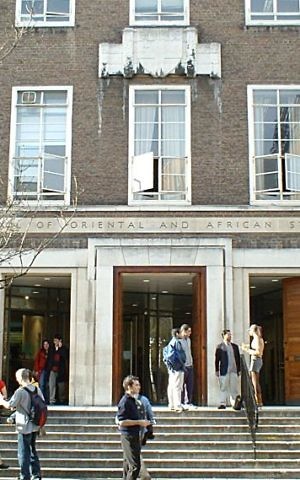OPINION: Free speech for all, not selective hate speech for some
Angry opposition to Israeli ambassador Mark Regev's upcoming talk at SOAS university highlights shameful double standards at the campus when it comes to the Jewish state
London’s School of Oriental and African Studies is the only higher education institution in Europe specialising in the study of Asia, Africa and the Near and Middle East, it’s designed to grapple with the pressing issues of these regions.
Therefore, there should be no furore around an event planned by the Model UN and SOAS Jewish society on 27 April hosting a discussion with the ambassador of Israel to the UK, Mark Regev.
Events such as these aren’t a sign of an institution as the Palestinian Society claims, “failing to uphold its basic duty of care to staff and students”, rather, it’s a sign of a university doing what it’s embodied to do – providing a platform for free speech, debate and discussion.
In 2015, 20 percent of our student body voted to censor and cut ties to all associated with Israeli academic institutions. However, banning by association contravenes one of the basic tenets of a university, free speech. In order to form complete and reasoned conclusions, we need to hear all sides. If one disagrees, don’t censor, engage and debate instead.
If it’s ‘dangerous’ to invite people who we disagree with, what kind of debate and discussion do we aspire to? One must ask oneself, especially when attending a centre for higher education, “Do I care about determining the truth through reasoned discussion and debate or am I only able to tolerate discussions with those agreeable to my point of view?”
SOAS academics and staff, particularly Yair Wallach, the chair of the Centre for Jewish studies, have also played their part. After claiming in an email that because “Regev’s talk is likely to be a controversial and fraught affair”, “We see little value in the talk itself.
This is the view of myself and other colleagues at the Centre for Jewish Studies. Therefore we suggest that the JSoc and the SOAS UN society reconsider the event”.
Why is it that he effectively asked us to cancel? Why is it that he went even further, emailing the academic chair selected for this event, writing: “I have been involved in discussions with the student Jewish society and with the management regarding the event. I would be very grateful if I could discuss it with you over the phone.” Yair and the Chair have since said that the phone call never managed to happen. The chair withdrew a few days after that email though, although this decision was made independent of the email.
Do we actually care about free speech or do we only care about hearing those that agree with us?
Do we reserve the right of free speech at our university only to the likes of Ilan Pappe who belittles anti-Semitism, Shlomo Sands who denies the existence of a Jewish people, Thomas Suarez who gave an anti-Semitic lecture and homophobic preacher Haitham al Haddad who supports female genital mutilation but then deny it to the ambassador?
This is double standards.
We should pride ourselves on free speech for all, not selective hate speech.
Engaging in debate with someone you disagree with isn’t ‘sponsoring’ their views, it’s an opportunity for us all to broaden our minds to dimensions of a discussion often ignored.
Societies that wish to bring controversial speakers shouldn’t be dissuaded from hosting events, they should be encouraged, it allows students to challenge both the speaker and their conceptions and arrive at independent conclusions.
We have had to respond to breaches in confidentiality by either management or the student union, before even receiving approval for this event, the Palestinian Society released a statement and wrote to the university demanding censorship. The university and the student union should provide greater support to students and societies, not attempt dissuade and sabotage them.
How about those that show solidarity with far more controversial speakers and events on campus listen and question those with differing views instead of trying to silence them?
• The author is president of the Jewish society at the School of Oriental and African Studies

Thank you for helping to make Jewish News the leading source of news and opinion for the UK Jewish community. Today we're asking for your invaluable help to continue putting our community first in everything we do.
For as little as £5 a month you can help sustain the vital work we do in celebrating and standing up for Jewish life in Britain.
Jewish News holds our community together and keeps us connected. Like a synagogue, it’s where people turn to feel part of something bigger. It also proudly shows the rest of Britain the vibrancy and rich culture of modern Jewish life.
You can make a quick and easy one-off or monthly contribution of £5, £10, £20 or any other sum you’re comfortable with.
100% of your donation will help us continue celebrating our community, in all its dynamic diversity...
Engaging
Being a community platform means so much more than producing a newspaper and website. One of our proudest roles is media partnering with our invaluable charities to amplify the outstanding work they do to help us all.
Celebrating
There’s no shortage of oys in the world but Jewish News takes every opportunity to celebrate the joys too, through projects like Night of Heroes, 40 Under 40 and other compelling countdowns that make the community kvell with pride.
Pioneering
In the first collaboration between media outlets from different faiths, Jewish News worked with British Muslim TV and Church Times to produce a list of young activists leading the way on interfaith understanding.
Campaigning
Royal Mail issued a stamp honouring Holocaust hero Sir Nicholas Winton after a Jewish News campaign attracted more than 100,000 backers. Jewish Newsalso produces special editions of the paper highlighting pressing issues including mental health and Holocaust remembrance.
Easy access
In an age when news is readily accessible, Jewish News provides high-quality content free online and offline, removing any financial barriers to connecting people.
Voice of our community to wider society
The Jewish News team regularly appears on TV, radio and on the pages of the national press to comment on stories about the Jewish community. Easy access to the paper on the streets of London also means Jewish News provides an invaluable window into the community for the country at large.
We hope you agree all this is worth preserving.
























